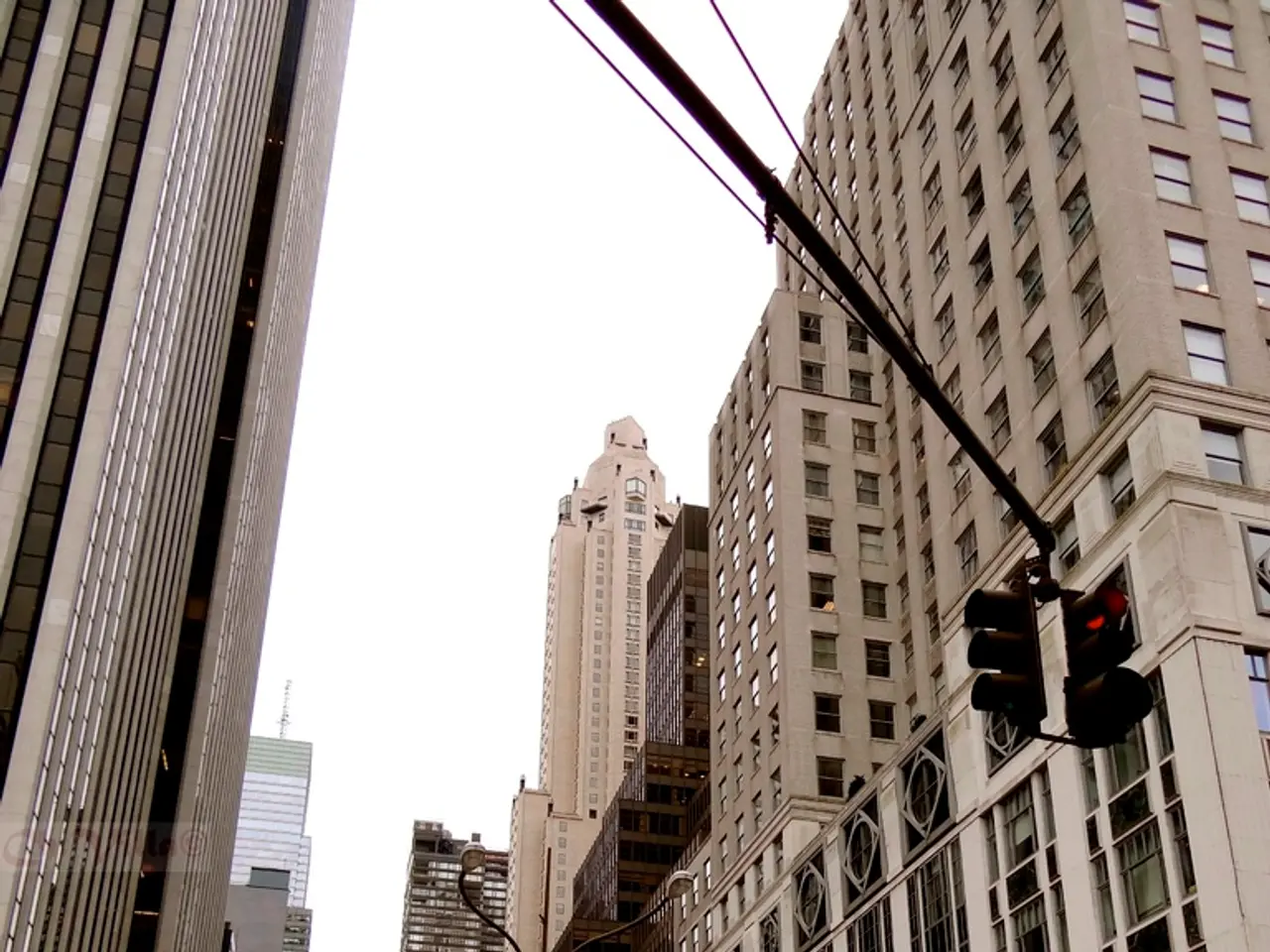Politician from the ruling party allegedly engaged in stock trading under a false identity
South Korean Lawmaker Under Scrutiny for Alleged Insider Trading and Asset Omission
A South Korean lawmaker, Rep. Lee Choon-suak, is facing intense scrutiny following allegations that he traded stocks using an aide’s name during a parliamentary session. The trades involved stocks related to artificial intelligence (AI) policy firms such as Naver and LG CNS, made shortly after a government announcement positively affecting those companies' stock prices.
The allegations suggest possible insider trading and violations of the Real-Name Financial Transactions Act. Rep. Lee Choon-suak, a senior Democratic Party lawmaker and former chair of the National Assembly Legislation and Judiciary Committee, resigned from his party and committee chair position amid mounting public and political pressure.
Evidence and Allegations
Photographs proved that Lee was using a mobile phone under the desk during a session to trade stocks in an account registered not to him but to his aide. These transactions coincided suspiciously with the announcement of the government’s AI champion project involving companies in which he traded shares.
Political Fallout
The main opposition People Power Party (PPP) has called Lee’s resignation insufficient, demanding a full investigation into his trading and broader asset disclosures linked to policy influence. Lee’s involvement in shaping national AI strategies while trading related stocks raises serious conflict of interest concerns.
Legal and Ethical Concerns
Using borrowed-name accounts for trading contravenes longstanding Korean financial law. The PPP is preparing ethics complaints and criminal referrals targeting Lee under laws governing financial transactions and public service ethics. The episode has reignited public outrage over abuse of insider information by lawmakers.
Impact on Policy and Trust
The President has ordered a thorough and impartial investigation to restore public trust and clarify whether and how Lee’s policy role intersected with personal financial gain. The case has sparked demands for wider reforms and investigations into financial ethics among South Korean legislators.
Next Steps
The Democratic Party plans to expel Lee. The vacancy at the Judiciary Committee chairmanship is set to be filled by another senior lawmaker. Meanwhile, political and legal processes will explore the full scope of Lee’s assets, other potential undisclosed trades, and any systemic issues of insider trading among lawmakers.
In summary, Rep. Lee Choon-suak faces potentially severe legal, political, and reputational consequences for alleged insider trading and asset non-disclosure, particularly given his prominent policymaking role connected with the stocks traded. The case has sparked demands for wider reforms and investigations into financial ethics among South Korean legislators.
[1] Local Media Publishes Image of Alleged Incident [2] Criminal Complaint Alleges Violations of Financial Transactions and Public Service Ethics Acts [3] Opposition Party Demands Full Investigation into Trading and Asset Disclosures [4] President Orders Thorough and Impartial Investigation [5] Democratic Party Launches Internal Probe
[1] The local media outlets have published an image that allegedly depicts Rep. Lee Choon-suak using a mobile phone to conduct stock trades during a parliamentary session, further fueling the general-news surrounding his alleged insider trading.
[2] A criminal complaint has been filed, alleging that Rep. Lee Choon-suak has violated both the Financial Transactions Act and the Public Service Ethics Act by using a borrowed name to trade stocks, particularly in the crime-and-justice sector related to artificial intelligence (AI) policy firms.








